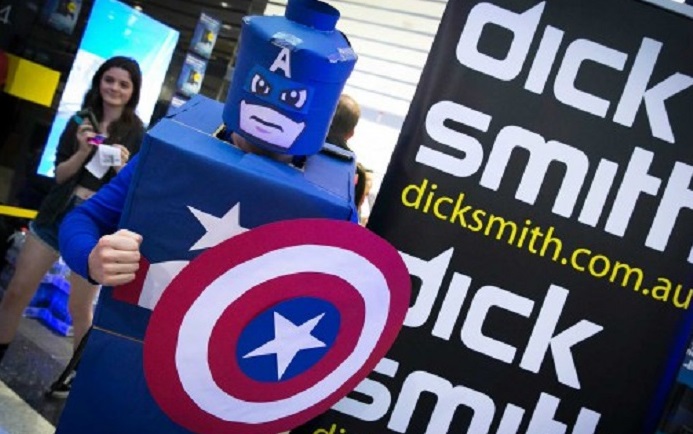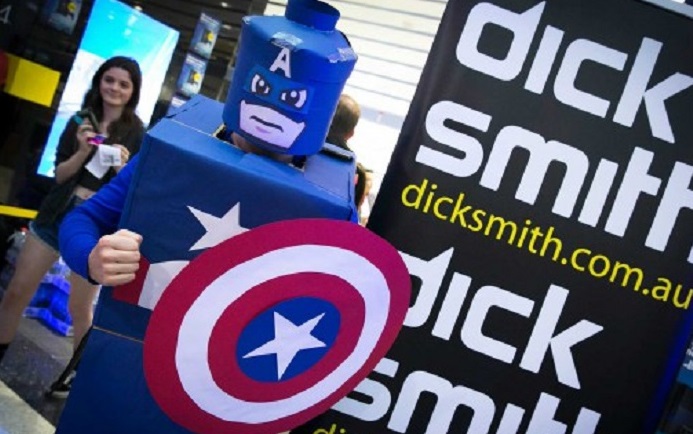Dick Smith Holdings has been hammered by the sharemarket with shares falling to a record low of $1.65, before closing down 16.5% at $1.67 yesterday. Analysts have attributed the fall to the company’s decision to stop discounting Apple products, a significant driver of sales over several years as well as soft sharemarket conditions.
This shareprice fall came despite sales growth for the company of 7.5% for the 52 weeks ended 28 June 2015 (FY2015), which was reported to the ASX yesterday. Comparable sales increased 1%, and Net Profit After Tax (NPAT) before restructure costs improved 3.1% to $43.4 million. It also coincided with the launch of Dick Smith’s small appliance department, Connected Home inside some of the company’s existing stores.
Meanwhile, Dick Smith managing director and CEO Nick Abboud, said this was the second year of solid performance as the company’s Growth Strategy continued to resonate.
“We are pleased to have delivered another solid underlying profit performance in our second year as a listed company. Second half NPAT increased 6.3% reflecting improved leverage, with Earnings before Interest, Tax, Depreciation and Amortisation (EBITDA) up 7.4% on sales growth of 6% impacted by an intentional reduction in unsupported promotions, patchy trading conditions and one less trading day in the important ‘tax-time’ June sales period,” he said in a statement to the ASX.
Abboud said that Australia continued to stand out, achieving 21.9% EBITDA growth for the year and 30.1% EBITDA growth in the second half, resulting in an Australian EBIT margin of 5.5% for the year.
Healthy margins
Gross margin for the year was 24.8% of sales (FY2014: 25.1%), with the Australian gross margin consistent at 24.9% of sales. Meanwhile, New Zealand’s gross margin was 23.5% of sales, reflecting a more competitive market and increased promotional activity, particularly in 1H 2015.
Abboud said Dick Smith continued to drive cost efficiencies, with cash Cost of Doing Business (CODB) decreasing 32bp to 18.7% of sales in 2015. Increases in depreciation and interest charges during the year reflect further investment to grow longer term shareholder value through the implementation of Dick Smith’s Growth Strategy.
EBITDA grew 7.3% to $79.8 million (FY2014: $74.4 million), before restructuring charges of $7.9 million and was achieved despite increased competitive activity.
Confident of growth
As reported in Appliance Retailer, Abboud is bullish that the company’s strategy of new store openings, rollout of small appliances and private label products will lift profit by between four and 11% to $45 million to $48 million in the year ahead.
“There will be less promotional (prices) for some of the big brands because we don’t need to drive a lower margin; we are getting natural foot traffic,” Abboud told media and analysts yesterday.
Dick Smith’s online sales have grown to 8% of revenue, from 2% two years ago, with TVs and computers its most popular items. The company is expecting this channel to benefit from its move into portable appliances.


